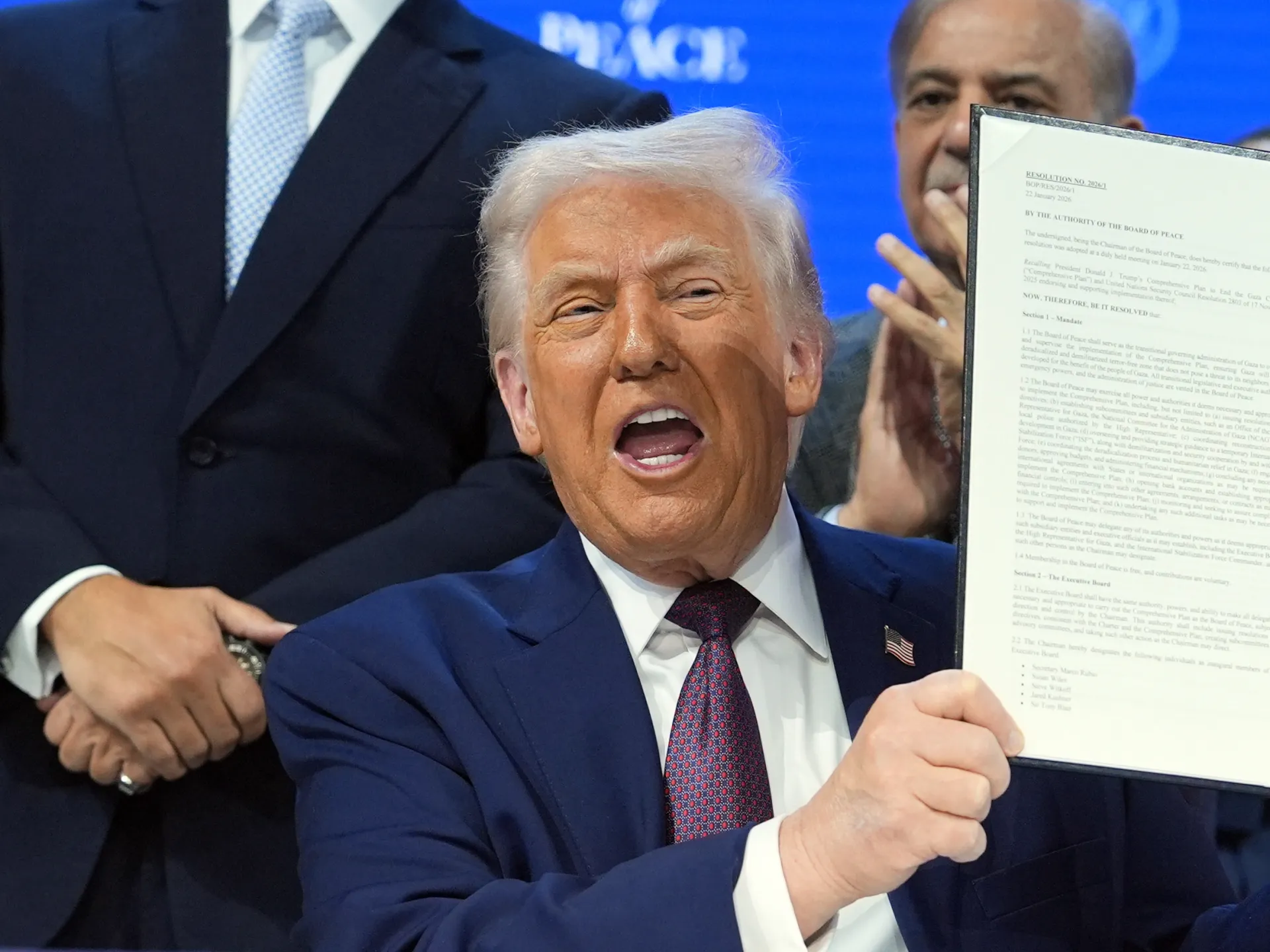Trump’s ‘Board of Peace’ sees Hamas disarmed and glitzy Gaza towers | Israel-Palestine conflict
Donald Trump officially launched his “Board of Peace,” offering a vision of Gaza that sees Hamas disarmed and real estate developments based on “free market economy principles.”
Published On 22 Jan 2026
